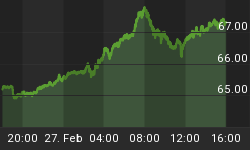The continued failure of BP's efforts to stop the Gulf oil spill and mounting political pressure are putting the very future of the British-based oil giant in question.
BP shares plunged again on Tuesday, wiping $17 billion off the market capitalization of the company. Premiums on credit default swaps to insure the company's debt soared 75% to $178,000 for $10 million as analysts began to question whether the company can survive the financial and reputational costs of the Deepwater Horizon catastrophe.
A former Clinton cabinet member, ex-Labor Secretary Robert Reich, now an economist at Berkeley, went so far as to urge the nationalization of BP by the U.S. government so that authorities could take direct control of the efforts to stop the spill and clean up the damage to the environment.
The existential threat to one of the largest companies in the world hits a company whose origins date back to the discovery of oil in the Middle East. BP began life in 1908 as the Anglo-Persian Oil Company to exploit oil fields discovered in what later became Iran.
When Iran nationalized its oil industry following World War II, the British government supported a CIA coup in that country that brought the shah to power and restored partial ownership of Iran's oil revenue to the British company, now called British Petroleum.
After a series of mergers in the 1980s and 1990s, including the acquisition of Amoco, the company adopted its present name, BP plc. Its advertising slogan in recent years has been "Beyond Petroleum," playing on that abbreviation.
But now, say analysts, the company will have difficulty in the face of civil and potentially criminal liability, shaking the damage to its reputation from the Deepwater Horizon accident and ensuing oil spill.
The failure of the company's latest effort to stem the flow of oil into the Gulf - the so-called "top-kill" bombardment with mud - made it likelier that only the drilling of a relief well would stop the flow. But that solution could take until August, with the risk that the shares and balance sheet of the company could continue to be hammered in the interval.
A weakened BP could be the target for a takeover or even bankruptcy, analysts suggested.
By Darrell Delamaide for Oilprice.com who offer detailed analysis on Oil, Geopolitics, Gold and most other Commodities. They also provide free political and economic intelligence to help investors gain a greater understanding of world events and the impact they have on certain regions and sectors. Visit: http://www.oilprice.com















